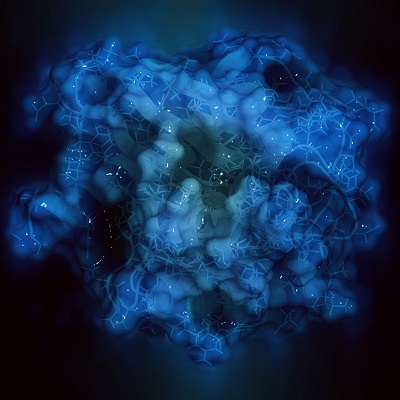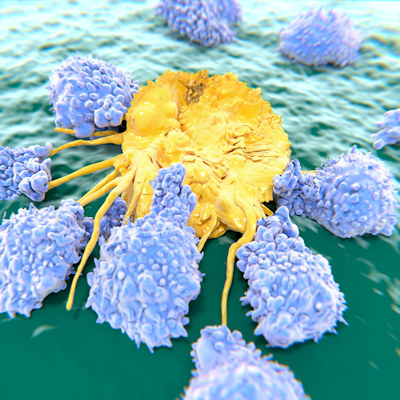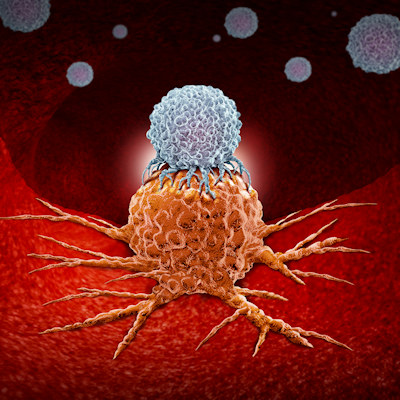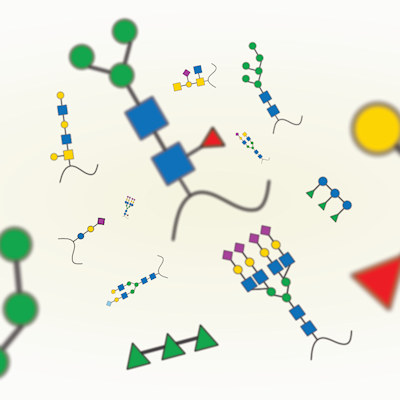November 8, 2022 -- University of Basel researchers have discovered a way to neutralize cancer cells' use of sugar molecules to disable attacks by the body's immune system. The study, published on November 2 in the journal Science Translational Medicine, may provide a new immunotherapy target.
Normally, the immune system effectively eliminates abnormal cells. Specific features of healthy cells enable the immune system to recognize them and leave them alone. However, cancer cells manipulate these safety mechanisms so the immune system does not detect their presence. Recent immunotherapies use artificial proteins to block these "immune checkpoints," allowing immune cells to attack cancer cells.
By altering sugar molecules on the surface of cancer cells, researchers significantly increased antitumor immune responses in mice. These sugars, which contain sialic acid, also occur on the surface of healthy cells and facilitate cell-to-cell communication. However, tumor cells boost the proportion of these sugars on their surface.
Immune cells called macrophages recognize sialic acid sugars and inadvertently communicate to nearby immune cells that there are no threats. Researchers demonstrated that sialic acid sugars could be reduced or removed using an enzyme so macrophages no longer prevented tumor attacks. They then identified the macrophage receptor that recognizes sialic acid sugars in mice. They hope to identify an equivalent receptor in humans.
The researchers seek targeted ways of removing sialic acid sugars from tumors while avoiding disruption to healthy cells, furthering ongoing efforts to use patients' immune systems to fight cancer.
"The combination of our approach with already established immune checkpoint blockade methods have meant we could really put the brakes on tumor growth in the laboratory mice," co-author Dr. Heinz Läubli, PhD, a University of Basel professor, said in a statement.
Copyright © 2022 scienceboard.net











